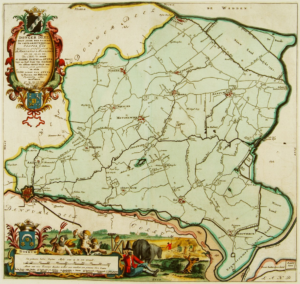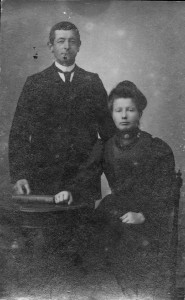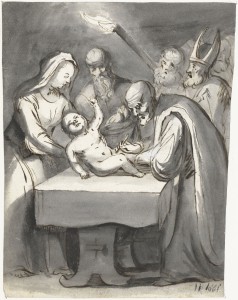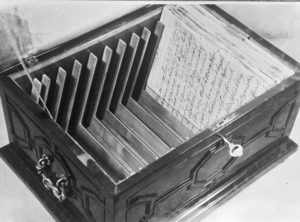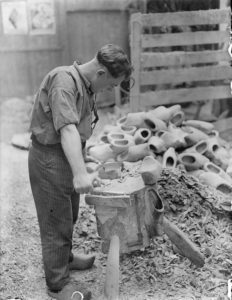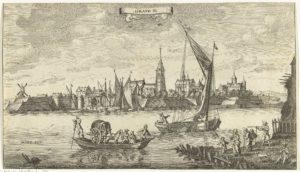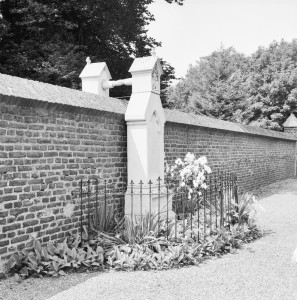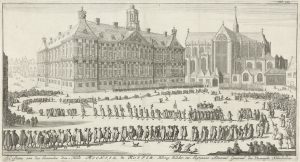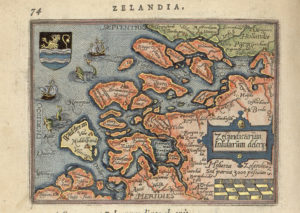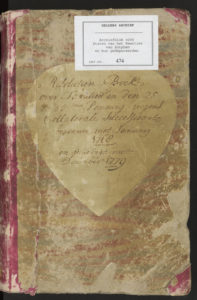A grietenij is a municipality. The term is mainly used in Friesland. In 1851, it was changed to gemeente, the common Dutch word for municipality. In parts of Groningen, the term grietenij was also used to refer to the local courts. A grietenij was led by the grietman, whose function was similar to that of a mayor. … [Read more...]
Dutch term – Verboden graad
A verboden graad means "forbidden degree." You will usually encounter this in marriage records, if the bride and groom received dispensation for being too closely related. This could mean that they were blood relatives, or relatives-by-marriage. You can also encounter the term in requests for dispensation to the civil or ecclesiastical courts, or the King and Queen (in later times). Read more about royal dispensations. … [Read more...]
Dutch term – Besnijdenis
Besnijdenis is the Dutch word for circumcision. In the Netherlands, circumcision was traditionally performed on Jewish boys only. For the period before the introduction of the civil registration in 1811, besnijdenisregisters [circumcision records] are an important source of birth information about male Jewish ancestors. They can often be found among the church records. Read about other resources for Jewish research. … [Read more...]
Dutch term – Openbaarheid
Openbaarheid means the status of a document as a public record. Records can have different statuses: Openbaar [public]: the record is public and can be accessed without restrictions. Beperkt openbaar [limited public]: the record is not public but can be accessed under certain conditions. Niet openbaar [not public]: the record is not public and cannot be accessed. Common reasons for records to not be public are to protect the privacy of living people or in the case of state secrets. … [Read more...]
Dutch term – Klompenmaker
A klompenmaker is a wooden shoe maker. For many people in the Netherlands, wooden shoes were the common footwear. Wooden shoes were sturdy, protected toes when something fell on it, and made from material that's easily available. And if they broke beyond mending, you could always use them for firewood! Nowadays, some farmers still wear wooden shoes because they're practical. They're also part of traditional costumes. … [Read more...]
Dutch term – Veer or Veerpont
A veer or veerpont is a ferry. If you can't find a person, try looking in the records on the other side of the ferry. People living on one side of the river may have normally used a ferry to go to church, but if the ferry was out during the winter or bad weather they might have had to go to another church to have their children baptized. People could have used the ferry to go to a market on the next island, and perhaps met a spouse there. If your ancestor was a ferryman, you may find an … [Read more...]
Dutch term – Gemengd huwelijk
A gemengd huwelijk is a mixed marriage. The term typically refers to two people with different religions, but is sometimes also used for two people of different racial backgrounds. Until recently, many churches would not perform a mixed marriage ceremony and required the other party to convert and promise to raise all their children in that church's faith. A civil marriage before the court was an alternative for couples who did not want to convert. Some couples chose to raise the boys in the … [Read more...]
Dutch term – Beste kleed
In burial records, you will sometimes see the reference to the "beste kleed" or "slechtste kleed." To someone unfamiliar with Dutch or using an automatic translator, that may look like somebody was buried in their best or worst clothes, but in fact the term refers to the lijkkleed or burial pall. The "beste kleed" was the best and most expensive pall. The "slechtste kleed" was the worst and cheapest pall. Many burial records were created as account books, to keep track of the income from … [Read more...]
Dutch term – Eiland
An eiland is an island. The Netherlands has several islands, such as the Zeeland islands in the south-west and the Wadden islands in the north. But there used to be many more. Large parts of the mainland of the coastal provinces used to be islands. The waterways have since been dammed off and reclaimed from the sea. Modern examples of this are the former islands of Urk and Schokland, now part of the province of Flevoland. Earlier examples include the former island of Cadzand in … [Read more...]
Dutch term – Collaterale Successie
Collaterale Successie [Collateral Succession] is the situation where an inheritance goes to heirs in collateral lines, such as the siblings, aunts and uncles of the deceased, or their descendants. Many regions charged a tax on collateral successions, which was recorded in separate registers. These tax registers can give a good overview of the family composition. After about 1806, these registers were rendered obsolete by the introduction of the Memories van Successie [death duties files] … [Read more...]
